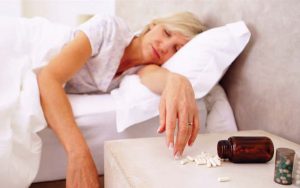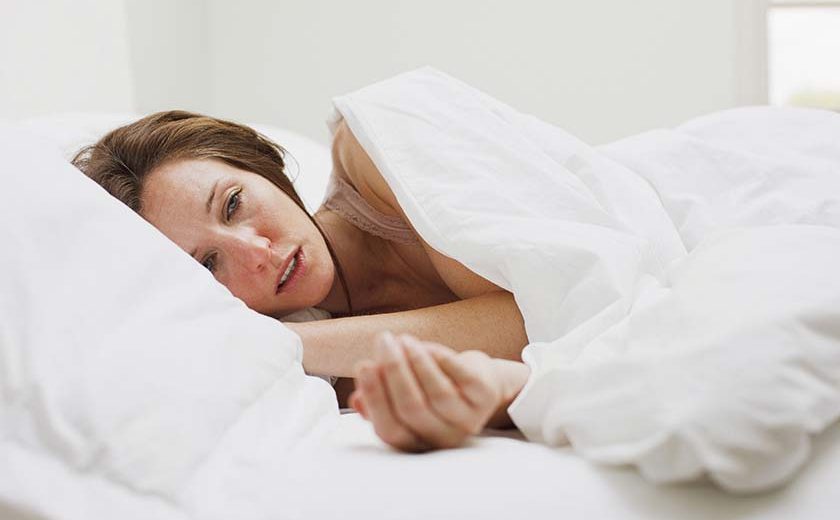Most of us wear contact lenses on a day-to-day basis. It’s literally the Holy Grail for those who are depending on bulky glasses before.
Contacts might be convenient and all but there are some bad habits that all of us are guilty of that could potentially get us blind if not fixed. Remember, you can always replace the contacts, but not your eyes. Your vision is one of your most valued senses.
Breaking into a sweat while sleeping isn’t unusual, especially if your room happens to be unusually warm during the night, or, if you happened to have piled on one too many blankets, or if you’re dressed in warm clothes on a warm night. What if, however, you keep sweating to glory for no apparent reason and keep having to wake up due to feeling drenched as if someone threw a bucket of water on you while you slept?
If this happens too often, it may be a wake-up call (no pun intended) for a medical check up, for there could be a number of reasons behind this.
Acid reflux
It’s not only the heartburn and chest pain that can wake you up. GERD (Gastroesophageal reflux disease) hasn’t been studied much as a cause of night sweats, but doctors say there’s a possible connection. GERD, is a digestive disorder that affects the lower esophageal sphincter (LES), the ring of muscle between the esophagus and stomach. Treating it can often ease your night sweats. Eat smaller meals, and not before bed. Avoid trigger foods — like those that are fatty, fried, or tomato-based. See your doctor if your symptoms are severe or happen more than a couple of times a week.
Certain medications
People who have to take medications before sleeping may experience night sweating as many kinds of drugs are known to induce sweating. These also include over-the-counter fever reducers like acetaminophen and NSAIDs such as aspirin and ibuprofen. Older antidepressants, called tricyclics or TCAs, as well as bupropion and venlafaxine, hormone replacement therapy, and steroids like cortisone and prednisone are common suspects. Some medicines for glaucoma and dry mouth also stimulate your sweat glands. Check with your pharmacist or doctor.

Plain old anxiety
While we should be able to cope with stress and worry, for some people, it becomes a problem when they’re sleeping at night. Panic attacks can cause you to break out in a sweat during the day, so it’s no surprise that high levels of anxiety can have the same effect at night. Nightmares and sleep terrors are less common in adults than children, but both can leave anyone sweaty and with a pounding heart. Seek help from a counselor, therapist, or your doctor if these disturbances are ongoing and cause you to have poor quality sleep.
An infection
A recent bacterial infection could trigger night sweats, often with a fever. For example, you could get brucellosis from raw milk or unpasteurized cheese, or if you handle animals or animal products. Other common bacterial infections are endocarditis (the inner lining of your heart), osteomyelitis (bone), and a pocket of pus in your liver called a pyogenic abscess.
Pheochromocytoma
This rare tumor that grows in the adrenal glands usually isn’t cancerous, but it can cause your body to make too many hormones, which raise your blood pressure and cause night sweats, headache, and a racing pulse. Most people with a pheochromocytoma are between 20 and 50. You’re more likely to have it if you have a hard time controlling your high blood pressure or have family members who’ve had one or a related genetic disorder.
Menopausal hot flashes
“Hot flashes” before and after your final period can be hard to distinguish from night sweats. Younger women who’ve had both ovaries removed or who stopped menstruating because of chemo can also get them. They’re more likely to happen when you’re anxious, depressed, or have a drink every day. However, just because you’re a woman of the right age (typically, in your late 40s or 50s), don’t assume your night sweats are menopause-related. To be safe, consult a doctor and have it checked.

Cancer or tumours
Night sweats are a classic symptom of carcinoid syndrome, the effect of a rare cancer usually found in your digestive system or lungs. Prostate cancer, kidney cancer, and some tumours in the ovaries and testicles (both cancerous and not) are also some examples of what doctors call “solid tumours” that can cause night sweats. A type of advanced thyroid cancer and cancer in your pancreas could also set them off.
HIV
Fever, sore or swollen lymph nodes, and joint pain are more common symptoms after you first get the virus and become HIV-positive, but about 1 in 10 people get night sweats. People living with HIV who have symptoms like weight loss and diarrhea may get night sweats once a week or so. AIDS-related opportunistic infections like mycobacterium avium (MAC, MAI) and cytomegalovirus can cause them, too.
Sleep apnea
When you have this condition, you briefly stop breathing over and over during the night. Because your body isn’t getting oxygen, it may slip into “fight or flight” mode, which triggers sweating. Each time it has to kick-start breathing means a burst of work from your muscles, too. People who use a CPAP machine* to help them breathe at night have night sweats about as often as those who don’t have sleep apnea.
TB (Tuberculosis)About half of all people who have this disease experience night sweats. The condition may cause bacteria to grow in your lungs, probably leaving you to battle with serious, painful cough. The coughs may or may not be accompanied by blood and colored gunk (phlegm). You also might feel feverish, tired, and weak, and have no appetite.
What’s a CPAP machine?
A CPAP machine is a device used to treat obstructive sleep apnea and other sleep-related breathing disorders with continuous positive airway pressure. There are many different CPAP machine models, and your doctor can help you determine which one is right for you. In most cases, a CPAP machine will include the following components:
- A nasal or full-face CPAP mask
- A CPAP hose typically measuring about 6-feet in length
- Certain CPAP machine models provide the option of a heated humidifier that adds moisture to the air as it travels from the hose to the mask for a more comfortable experience.
Low blood sugar
Do you have diabetes? While your blood glucose may be OK when you turn in, it can drop while you’re asleep. Maybe you had a very active day, or exercised in the evening, or had a late dinner. If you use insulin or take a sulfonylurea-type drug to manage your diabetes, that may be responsible for your overnight hypoglycemia. When your glucose is lower than 140 mg/dL before bed, or it could fall in a few hours, have a snack.
Overactive thyroid
Sweating more and being sensitive to heat are notable symptoms of hyperthyroidism. Your thyroid gland controls your metabolism, so when it makes too much hormone, your body goes into overdrive. Your body temperature rises, and you could be hungrier or thirstier, have a racing pulse or shaking hands, feel tired and out of sorts, get diarrhea, and lose weight.
Finding relief
A lower temperature in the bedroom and fans to circulate the air may make you more comfortable. Use moisture-wicking quick-dry sheets and night wears. Avoid synthetic fabrics that don’t breathe. If you can’t figure out what’s causing your night sweats, keep a diary to share with your doctor. Ideally, you’ll be able to treat the cause and not just the symptom.
LYMPHOMA
Many cancers can cause night sweats, but the most common is lymphoma, which starts in parts of your body’s immune system, like lymph nodes, the spleen, bone marrow, and the thymus. About a quarter of people with Hodgkin’s lymphoma get night sweats and have a low fever. They may also be tired, itchy, and, after drinking alcohol, hurt where their tumor is. People with aggressive or advanced non-Hodgkin’s lymphoma can get drenching night sweats, too.
Source: webmd.com


